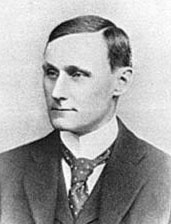Percy Pilcher | |
|---|---|
 | |
| Born | 16 January 1867 |
| Died | 2 October 1899 (aged 32) |
| Cause of death | Glider accident |
| Burial place | Brompton Cemetery, London |
| Occupation | Inventor |
| Known for | Aviation pioneer |

Percy Sinclair Pilcher (16 January 1867 – 2 October 1899) was a British inventor and pioneer aviator who was his country's foremost experimenter in unpowered flight near the end of the nineteenth century.
After corresponding with Otto Lilienthal, Pilcher had considerable success with developing hang gliders. In 1895, he made repeated flights in the Bat, and in 1896–1897 many flights in the Hawk culminated in a world distance record.
By 1899, Pilcher had produced a motor-driven triplane, which he planned to test at Stanford Hall in Leicestershire on September 30, 1899; however, the attempt was delayed by mechanical problems. When he substituted a flight of Hawk, it suffered structural failure in mid-air and he was fatally injured in the resulting crash, with his powered aircraft never having been tested.
Research carried out by Cranfield University in the early 2000s concluded that Pilcher's triplane was more or less workable, and would have been capable of flight with design modifications. This raised the possibility that Pilcher could have been the first to fly a heavier-than-air powered aircraft had he survived.